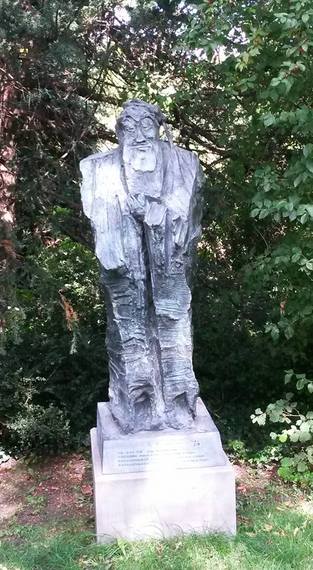SANITY
Regular Member
- Joined
- Oct 16, 2014
- Messages
- 695
- Likes
- 305

Visitors to a museum in Beijing that commemorates the conflict known outside China as the Second Sino-Japanese War.CreditKevin Frayer/Getty Images
https://www.nytimes.com/2017/01/11/world/asia/china-japan-textbooks-war.html
BEIJING — For generations, the “Eight-Year War of Resistance Against Japanese Aggression” has been ingrained in the minds of Chinese schoolchildren. Revolutionary hymns evoked the bloody years, from 1937 to 1945, of what is known outside China as the Second Sino-Japanese War. Documentaries denounced Japan’s “eight years of belligerence.”
Now the war is getting a new name, and an extended time frame.
In a move aimed at stirring up nationalism and support for the ruling Communist Party, President Xi Jinping’s government has ordered educators to rewrite textbooks to describe the conflict as the “14-Year War of Resistance Against Japanese Aggression,” lasting from 1931 to 1945, the authorities said in a statement on Wednesday.
Under the decision, the Second Sino-Japanese War will be described as having started in the fall of 1931, when the Imperial Japanese Army invaded Manchuria. Previously, the war’s beginning had been traced to the Marco Polo Bridge incident, a skirmish in 1937 between Japanese forces and Chinese troops along a rail line southwest of Beijing that marked the beginning of full-scale conflict.
The Chinese Ministry of Education said the decision to add six years to the war sought to promote patriotic education and to highlight the Communist Party’s “core role” in resisting Japanese fascism in the prelude to World War II. It also seemed intended to rally support for the party among young people as Mr. Xi vigorously promotes Communist history and thought in schools.
Zhang Lifan, a historian in Beijing, said the decision to revise the length of the war was justified from a historical perspective. But he said it would also have political benefits for the party and would encourage anti-Japanese sentiment.
“Chinese leaders still have a Cold War mentality,” he said. “They’ve tried to conjure up imaginary enemies in the world.”
Mr. Xi has worked in recent years to enhance the image of the Communists and their achievements in World War II, even though many historians believe it was the Chinese Nationalists, not the Communists, who did most of the fighting.
The party had not previously emphasized the fight against the Japanese from 1931 to 1937, when Communist forces were in disarray as they fought a civil war with the Nationalists. During that time, the Nationalists led efforts to resist the Japanese and negotiate truces. It was not until 1937 that the Communists joined forces with the Nationalists to fight an increasingly belligerent Imperial Japanese Army.
Kerry Brown, a professor of Chinese politics at King’s College London, called the textbook revision a “tidying up of history.” He said the revised account exaggerated the Communists’ accomplishments.
“It demonstrates this continuing keenness by the party now to seek sources of legitimacy wherever it can,” he said, “and reveals more insecurity than real strength.”
The change will probably ruffle feathers in Japan, China’s longtime rival, as the countries jockey for influence in Asia and struggle to overcome the legacy of World War II, more than 70 years after the global conflict ended.
Japanese officials did not respond to requests for comment on Wednesday. But Masumi Kawasaki, a Shanghai-based correspondent for Sankei Shimbun, a right-leaning daily, wrote in an article that Mr. Xi’s government was “trying to heighten its anti-Japanese stance through history education.”
Mr. Xi has accused Japan of distorting history, and the Chinese state news media has criticized Tokyo’s efforts to revise textbooks, saying it has played down atrocities by Japanese soldiers.
When Prime Minister Shinzo Abe of Japan visited Pearl Harbor last month, Chinese internet users brimmed with outrage, saying Mr. Abe had not done enough to apologize to China for Japan’s actions during World War II.
In Beijing, many people applauded the government’s decision to revise the textbooks, which are filled with references to wars against “aggression” by foreign forces. The Korean War, for example, is known as the war to resist United States aggression and aid Korea.”
“The Japanese have also altered their textbooks, why can’t we?” said Wang Yalin, 30, a musician. Still, he said, the change would most likely fuel anti-Japanese sentiment in China.
Zhao Feng, 38, a tailor, acknowledged that the relationship between the countries had deteriorated. But he said it was important to note the earlier date of Japan’s invasion of China. “The occupation started much earlier,” he said.
On social media, some were more skeptical of the government’s motives.
“Don’t use history education for political ends,” one person wrote on Weibo, China’s equivalent of Twitter. “The most important thing is to learn the truth.”





